人间/A human/мир/세계/thế giới/mundo/عالم/人間
>>Lenče Zdravkin, a Macedonian Woman Whom Refugees Call Their ‘Second Mother’
>>Posted 3 January 2017 12:31 GMT
https://globalvoices.org/2017/01/03/lence-zdravkin-a-macedonian-woman-whom-refugees-call-their-second-mother/

>>Lenče Zdravkin on the balcony of her house in Veles, Macedonia. Photo by Viktor Popovski/IKS, CC BY-NC-ND 3.0
Several days before the New Year, the nonprofit platform “Samo prashaj” (which translates to “just ask”) published a piece by Lenče Zdravkin, a journalist turned humanitarian worker from Veles, Macedonia, whose work helping migrants and refugees has earned her much public admiration.
Zdravkin's house is located next to a set of train tracks that are used by migrants and refugees passing from Greece towards Western Europe. After entering the country illegally from Greece, they avoided normal transport means, and drivers who pick them up as hitchhikers–even ambulances–risked being arrested for human trafficking. So the refugees walked, using the tracks as a guide through this portion of the south-to-north ‘Balkan Route.’
In the summer of 2015, as the number of migrants and refugees arriving to Europe spiked, Macedonian authorities put in place new laws and procedures to deal with the influx. As a result, fewer people are walking the Balkan Route these days, although plenty still do, mainly economic migrants who want to avoid the bureaucracy of applying for asylum.
The town of Veles is located about halfway on the railway from Gevgelija to Tabanovce. Photo By Maximilian Dörrbecker (Chumwa) - own work, usinginformations about the Macedonian railway networkpolitical boundariesflag of Macedonia, CC BY-SA 2.5, Link

The town of Veles is located about halfway on the railway from Gevgelija to Tabanovce. Wikipedia photo by Maximilian Dörrbecker – Chumwa, CC BY-SA 2.5.
The trek can be perilous. Over the last several years, several dozen migrants and refugees have perished on and near the railway, the victims of accidents or violence at the hand of local gangs.
In her account, Zdravkin said she couldn't just stand by idly and watch, so she started helping them any way she could, first with her own resources, and then as part of widening network, which grew in spite of rising xenophobia, fueled by ruling politicians and the media in their service.
Lenče Zdravkin turned the ground floor of her house into a storeroom for humanitarian aid handed to passing refugees and migrants. Photo by Viktor Popovski/IKS, CC BY-NC-ND 3.0

Lenče Zdravkin turned the ground floor of her house into a storeroom for humanitarian aid handed to passing refugees and migrants. Photo by Viktor Popovski/IKS, CC BY-NC-ND 3.0
She wrote:
Translation
Original Quote
It was in the beginning of 2013, around March or April, the temperatures were still low like they are now. There was no time to wait, or to ask who they are, what they are. As soon as I saw them–young boys–I went to buy bread, to help them, to give it to them. At that time the law on refugees wasn't changed and it wasn't as free. Mostly, all of this was happening exclusively during the night, and I used to sit up all night to wait for the groups. The sound of their footsteps is different compared to the locals. Their feet are heavy and when I hear them moving over the rocks, I know it's them.
I gather the donations on the ground floor of the house, and I try to have all the basic necessities for them. I was doing that on my own for a long time. I came to the point of selling much of my stuff. Some refugees need medicine, so I send the kids or I myself hop over to the pharmacy to buy pills. Personal hygiene products are always needed, shoes, food, milk for the children. It used to happen that on some days, there would be 300, 400, 500 people at once in my yard, in my hallway, on the stairs. You need to prioritize then, look after the elderly, the pregnant, to call an ambulance or the Red Cross for the ill. Some of the wounds I dressed myself, if I could.
Lenče Zdravkin in her home in Veles, Macedonia. Photo by Viktor Popovski/IKS, CC BY-NC-ND 3.0

Lenče Zdravkin in her home in Veles, Macedonia. Photo by Viktor Popovski/IKS, CC BY-NC-ND 3.0
Translation
Original Quote
I had a large family before the refugees came, now I have even larger one. They call me “Lence” [pronounced with a soft c, as opposed to the hard č] or “mom,” even people older than me have called me mother. One of them said, “I left one mother in Aleppo, you are the second one.” They would call me and say, “Mother, I arrived at a safe place.”
They all respect me, send me messages, want to see me again one day, to visit them. I managed to join 13 members of one family and get them to meet in my yard here. After one year they called to ask for help again, to help them find their last sister and her children. In a mass of thousands of refugees, I was calling, Jasmine, Jasmine, until I found her. The whole family managed to get together. They are happy now, going to school, learning the language, they are very glad to be together.
Lenče Zdravkin and the train tracks in Veles, Macedonia. Photo by Viktor Popovski/IKS, CC BY-NC-ND 3.0

Lenče Zdravkin and the train tracks in Veles, Macedonia. Photo by Viktor Popovski/IKS, CC BY-NC-ND 3.0
Translation
Original Quote
Many accidents did happen. The train took a lot of casualties. Those were people who came to me, whom I've helped and only several kilometers down the track from my house the train run them over. I was going from one institution to another to arrange a funeral at the new cemetery. They dug a mass grave, I called an imam, to pay the proper respects, according to their customs. I made a monument at the grave this year, with a sign in Arabic and English. I felt the need to do that, in case someone looks for them, even though we don't know their names. Whenever I think of that I feel sick, those images won't fade away. A million refugees who left and their million stories all exist in me, and every one of them left a scar.
Lenče Zdravkin

Lenče Zdravkin. Photo by Viktor Popovski/IKS, CC BY-NC-ND 3.0
Translation
Original Quote
Economic migrants never stopped passing. Just now, a boy contacted me, I don't know from where, whether from Syria or Iraq… He wrote, “I start the journey on foot at any price, are you there?” We understand each other very easily, even though they don't understand our language [Macedonian], and I don't speak theirs, but to help someone it's enough to talk with your eyes. I think I am not here by accident. I don't say I have helped a lot, but they are so traumatized and fatigued, that even a kind smile means a lot to them. I get my energy from them, after they regain some strength they can tell a joke, they have the wish to live, to go on. Thanks to them I realized we should always be grateful for what we have. It's sad that we don't know how to appreciate it.
Zdravkin's piece on the Samo prashaj portal is licensed under a Creative Commons Attribution-NonCommercial-NoDerivs 3.0 Unported (CC BY-NC-ND 3.0) license. Global Voices is translating and republishing this important testimony with permission from the Institute of Communication Studies (IKS) from Skopje, which organized the story.










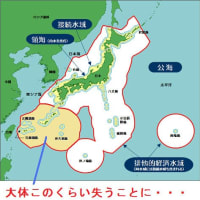
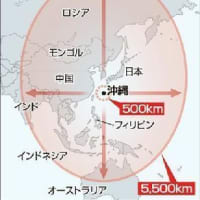
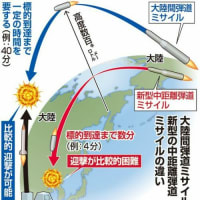
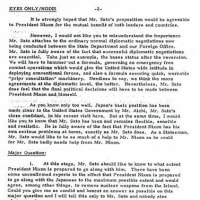
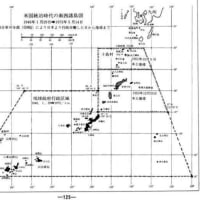
※コメント投稿者のブログIDはブログ作成者のみに通知されます